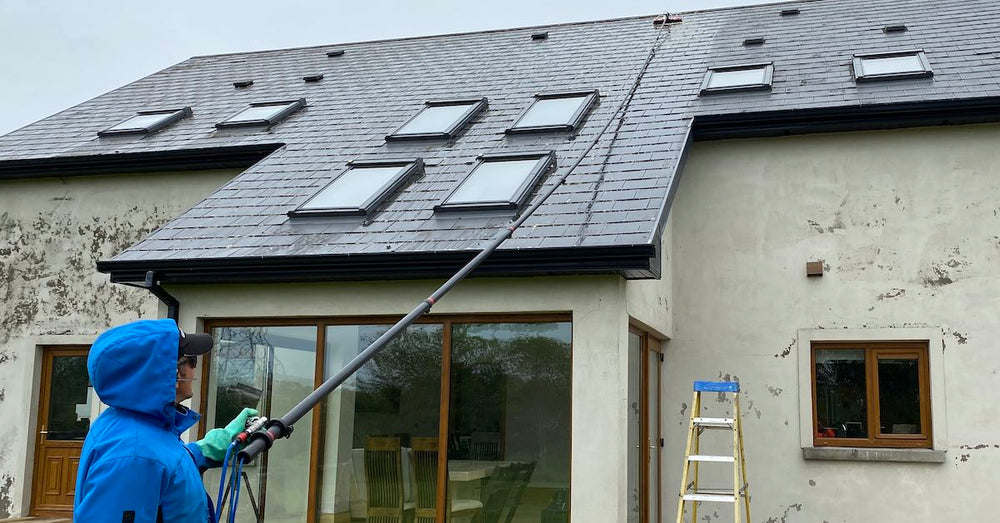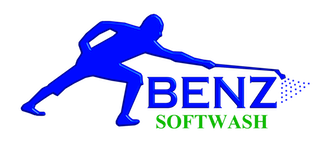
When soft washing a roof, should you first scrape moss from the roof, or not? This is a question we are frequently asked. So we thought to clarify the practicalities and legalities of removing moss from roofs in light of our experience.
A spray-only treatment – with any softwash chemical – of roof moss is never completely satisfactory and the practice contravenes the PPP (Plant Protection Products) regulations 2015 regarding the chemical treatment of moss.
Through numerous trial and error experiments over several years, manual scraping prior to treating the biofilm with Benz Bio Cleanze proved to be the most effective approach.
Spraying with Benz Lightning Cleanze
In the past we experimented with spraying moss with highly concentrated Lightning Cleanze.
This approach quickly turned the moss into a mush. The problem was that, if not removed from the roof, rain washed the mush into gutters, downpipes and drains. Obviously this could cause serious, hard to remove blockages.
Removing the mush by hand, prior to it entering the drainage system, proved to be messy, difficult, potentially dangerous and highly unpleasant.
This approach led to the possibility of active sodium hypochlorite remaining in the mush, so stringent H&S precautions, including appropriate PPE, had to be implemented.
Quick tip: Following the changes in HSE legislation from June 2015, treating moss by the chemical spraying of biocides is no longer allowed. Now, we always remove moss by manual scraping before treating the biofilm with Bio Cleanze.
Through many years of experience, we've found it to be most effective – and also to be in accordance with HSE regulations – to remove moss from a roof prior to soft washing, by using Benz Professional Roof Moss Scrapers.
We hope this information is helpful and sincerely wish you great success in your soft washing business,
The Benz team



Responses
Team Benz
Thank you very much for your feedback, we appreciate it.
August 14, 2024
Forcewashing
The article provides practical tips on how to do this safely and highlights the benefits of thorough moss removal for roof longevity.
August 14, 2024
Rip City Roof Cleaning
The detailed explanation of the process and practical tips make it a helpful resource for professionals looking to enhance their techniques and deliver high-quality services to clients.
June 04, 2024
Leave a comment